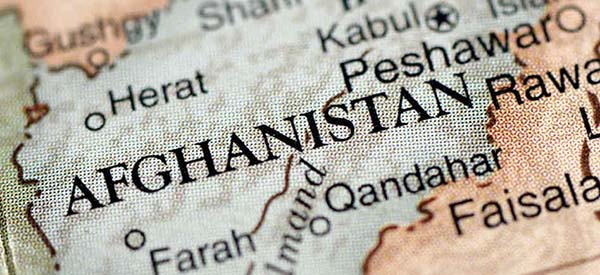Afghanistan has been a hospitable land, hosting a large number of expeditions to unusual power seekers. The Mughal Empire in Sub-continent laid its foundation via routes through this land.
Since ages, it has served a center for military and political tryout between the world’s regional and global powers and hitherto, this practice continues. Afghanistan, the land of Afghans, takes its roots from Persian word “Fughaa” means painful reverberation.
The negligent political vision of politicians not only endangered its existence but also weakened the socio-political fabric of this multi-ethnic land, lengthening the suffering of people. The deliberate and planned political instability structured for this land did not let it subsist with peace and harmony.
Moreover, the ingenuity of political leadership was pitiable enough to find out the serious concern and consequently could not suggest possible timely remedy.
The Post 9/11’s bloody incidence, the US invasion toppled Taliban dictatorial regime. Since then a nominal democracy seems to have installed in Afghanistan, yet a democratic culture and democratic temperament are non-existent. The century long autocratic and despotic brought up, could not get away the unyielding behavior of the ruling class in democratic era.
The power exploitation based on ethnic discrepancy, political and socio-economic disparity, widely seen in every public department and institutions are hastily growing. Currently it passes through a democratic dictatorship –it does not owe the salient fortitude of democracy –the joint opposition is kept ignorant on key issues, be that political, socio-economic or the future prospect of the country.
Out of multiple contributors, Pakistan and US are the chief players of durable peace to be installed in Afghanistan. Formerly, the US secretary of state John Kerry hosted talks between Afghan President Hamid Karzai and Defence Minister Bismillah Mohammadi Khan and Pakistan’s army chief General Ashfaq Parvez Kayani in Brussels, in a bid to ease escalating tensions between the two countries. The talks took place at a time when relations between the neighbors were severely strained on both the political and security fronts, with weeks of tension at the shared border and stalled peace efforts.
Secretary Kerry, while terming the talks “productive”, also cautioned that “…results are what will tell the story, not statements at press conferences”. The US has rightly identified that the effectiveness of future negotiations in the region hinge upon forging better relations between Pakistan and Afghanistan as NATO prepares to pull out its troops.
Relations between Islamabad and Kabul, however, have been strained for years and Karzai has accused Pakistan of aiding the Taliban who seek refuge along their rugged border. Signs earlier this year of an improvement in relations have faded amid disagreements between the two over how to promote peace efforts by bringing the Taliban on board.
Afghanistan accuses Pakistan of supporting the insurgents to counter the influence of archrival India. Washington for its part has pushed the trilateral discussions since 2009 in an effort to ease such suspicions but they are deep-seated.
Pakistan on the strongly rejects the charge it helps the Taliban and owes to remain committed to continue its positive and constructive role towards a durable peace in Afghanistan. Ostensibly, the official accounts turn down the existence of conflict between the two neighbors –nevertheless, the angered disposition over hot issues is self-exposure to underlying facts.
It is said, that Pakistan pursues its strategic interest lying deep down in this land that provide firm basis to their historic conflicts. First, Pakistan wants Afghanistan accept the Durand line, an international border. Second, Pakistan wants more political mileage to be given than any other country, which is an irrational demand.
Unless the assurances safeguarding its interests and security are given, it might not extend its sincere efforts calming the Taliban that enjoy its support. These escalating suspicions spark the rising conflict, pivoted on the aforementioned concerns.
Without having owned a rational, democratic and progressive tune, the existing concerns and issues cannot find solution except growing distrust. The concurrent distrust weakens the dream of prosperous Afghanistan, if the leadership of the two countries does not take serious steps, downsizing the trust deficits; civilizing the relationships on the itinerary to accomplishment might not lead to fruition.
Taliban has carved irreparable socio-economic and political harms on Afghanistan that takes long to done away with. Conversely, Taliban enjoys covert financial and political support from some organizations.
The international community and UN seem on the same page –for having not thought of sanctioning their secret accounts where they draw handsome sum from certain influential patrons. It is thus, the 11 years long combat mission could disgruntle its military might.
According to latest UN report Taliban are the sole reasons for 30 percent increase in civilian causalities yet progresses with systematic strikes at significant sites at will. Taliban seems the only hurdle to durable peace in Afghanistan but enjoys great sum of concession.
On the other side, US wants his interests fortified, long-term security accord should be signed given he could draw more privileges that are political. Another, assurance he seeks is unconditional constitutional immunity to his arm forces, as expected to stay beyond 2014, draw down, to accomplish the next phase of counterinsurgency mission that is to advice, train, assist the ANA personnel.
In the battle of power politics underway, Saudi Arabia and Iran are other important players, pursuing their ideological propagation at this land. They are alleged to fuel sectarian conflicts through their old practiced tactics. The sectarian conflict is the most suitable discourse opted for propagation of their interests.
The intellectual has truly said, “If you seek a solution to a problem that can be the part of problem”. Those, who seem to be the part of problem in Afghanistan, can be the part of solution to the existing problem, if the leadership could well understand the basis of crisis. The genuine leadership of Afghanistan, in unanimous collaboration with all segments of afghan society has to contemplate prior to making decision that serve Afghanistan’s interests. The principal to follow, must be “first comes Afghanistan.”

